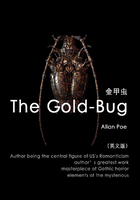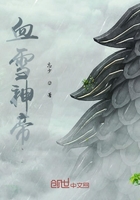I
The heat has not let up as the evening shadows have fallen, and unlike other summer nights, there is not so much as the breath of a breeze. Salvador is burning up with the heat in the darkness. It is now pitch black, since at midnight, by municipal ordinance, the gaslights on the street corners go out, and the lamps in the houses of night owls have also gone out some time ago. Only the windows of the Jornal de Notícias, up there on the heights of the old city, are still lit, and their brightness makes the fancy Gothic lettering of the name of the newspaper on the windowpanes of the front office even more indecipherable.
Outside the door is a calash, and horse and coachman are both dozing. But Epaminondas Gon?alves's henchmen are awake, smoking, as they lean their elbows on the wall above the escarpment next to the newspaper office. They are talking together in a half whisper, pointing to something down below, there where the massive bulk of the Church of Nossa Senhora de Concei??o da Praia and the fringe of foam along the reef are just barely visible in the darkness. The mounted police patrol has passed by on its rounds a while before and will not be back that way till dawn.
Inside, all by himself in the combination copy room and office, is that young, thin, ungainly journalist whose thickened eyeglasses to correct his nearsightedness, his frequent fits of sneezing, and his insistence on writing with a goose-quill pen instead of a metal one make him the laughingstock of the office staff. Leaning over his desk, his ugly head bathed in the halo of light from the little lamp, in a posture that makes him hunch over the desk at an awkward angle, he is writing rapidly, stopping only to dip his pen in the inkwell or to consult a small notebook, which he raises up so close to his eyeglasses that it almost touches them. The scratching of his pen is the only sound in the night. The sea is inaudible tonight and the office of the owner and editor-in-chief, which is also lighted up, is silent, as though Epaminondas Gon?alves had fallen asleep at his desk. But when the nearsighted journalist has set down the last word of his article and swiftly crosses the large outer office and enters the office of the head of the Progressivist Republican Party, he finds him waiting for him with his eyes wide open. His elbows are resting on the desk and his hands are crossed. As he sees the journalist enter, his dark, angular face, whose features and bones are underscored by that inner energy that enables him to spend entire nights without a wink of sleep at political meetings and then work all the following day without the least sign of fatigue, relaxes, as if to say: 'Well, at last.'
'Is it finished?' he murmurs.
'Finished.' The nearsighted journalist holds the sheaf of pages out to him. But Epaminondas Gon?alves does not take them.
'I'd rather you read them aloud to me,' he says. 'If I hear them, I'll have a better idea of how they turned out. Have a seat there, next to the light.'
As the journalist is about to begin to read, he is overcome by a sneeze, and then another, and finally a fit of them that forces him to remove his eyeglasses and cover his mouth and nose with an enormous handkerchief that he pulls out of his sleeve, like a sleight-of-hand artist.
'It's this summer dampness,' he says apologetically, wiping his congested face.
'I know,' Epaminondas Gon?alves cuts him short. 'Please read.'
II
A United Brazil, A Strong Nation
JORNAL DE NOTíCIAS
(Owner: Epaminondas Gon?alves)
Bahia, January 3, 1897
The Defeat of Major Febr?nio de Brito's Expedition in the Hinterland of Canudos
New Developments
THE PROGRESSIVIST REPUBLICAN PARTY ACCUSES THE GOVERNOR AND THE BAHIA AUTONOMIST PARTY OF CONSPIRING AGAINST THE REPUBLIC TO RESTORE THE OUTMODED IMPERIAL ORDER
The corpse of the 'English agent'
Commission of Republicans journeys to Rio to seek intervention of Federal Army to put down rebellion of subversive fanatics
TELEGRAM OF PATRIOTS OF BAHIA TO COLONEL MOREIRA CéSAR: 'SAVE THE REPUBLIC!'
The defeat of the military expedition under the command of Major Febr?nio de Brito and composed of troops from the Ninth, Twenty-sixth, and Thirty-third Infantry Battalions, and the growing signs of complicity between the English Crown and the landowners of the State of Bahia known to have ties to the Autonomist cause and nostalgic leanings, on the one hand, and the fanatics of Canudos, on the other, resulted on Friday evening in yet another stormy session of the Legislative Assembly of the State of Bahia.
Through its President, the Honorable Deputy Dom Epaminondas Gon?alves, the Progressivist Republican Party formally accused the governor of the State of Bahia, the Honorable Dom Luiz Viana, and the groups traditionally affiliated with the Baron de Canabrava – the former Minister of the Empire and former Ambassador of the Emperor Dom Pedro II to the British Crown – of having fomented the uprising in Canudos and of having furnished the rebels arms, thanks to the aid of England, with the aim of bringing about the fall of the Republic and the restoration of the monarchy.
The Deputies of the Progressivist Republican Party demanded that the Federal Government intervene immediately in the State of Bahia in order to snuff out what the Honorable Deputy Dom Epaminondas Gon?alves called 'a seditious plot on the part of native bluebloods and the greed of Albion aimed against the sovereignty of Brazil.' Moreover, it was announced that a Commission made up of prominent figures of Bahia had departed for Rio de Janeiro to make representations to President Prudente de Morais concerning the public hue and cry in Bahia for troops of the Federal Army to be sent to wipe out Ant?nio Conselheiro's subversive movement.
The Progressivist Republicans reminded the Assembly that two weeks have now passed since the defeat of the Brito expedition by rebels vastly superior in number and better armed, and that despite this fact, and despite the discovery in the hamlet of Ipupiará of a shipment of English rifles being delivered to Canudos and the corpse of the English agent Galileo Gall, the State authorities, beginning with His Excellency Governor Dom Luiz Viana, have demonstrated a suspect apathy and passivity by not having immediately called for the intervention of the Federal Army, as the patriots of Bahia are demanding, in order to put down this conspiracy that is threatening the very existence of the Brazilian nation.
The Vice-President of the Progressivist Republican Party, the Honorable Deputy Dom Eliseu de Roque, read a telegram sent to the hero of the Republican Army, the officer responsible for crushing the monarchist uprising in Santa Catarina and the eminent collaborator of Marshal Floriano Peixoto, Colonel Moreira César, the text of which consisted of the following terse message: 'Come and save the Republic.' Despite the protests of the deputies of the majority, the Honorable Deputy read the names of the 325 heads of households and Salvador voters who had signed the telegram.
The Vice-President of the Autonomist Party and President of the Legislative Assembly, His Excellency Sir Adalberto de Gumúcio, declared that it was base calumny even to intimate that a man such as the Baron de Canabrava, a leading figure in Bahia, thanks to whom this State has roads, railways, bridges, charity hospitals, schools, and a multitude of public works, might be open to the accusation – leveled against him, moreover, in absentia – of conspiring against Brazilian sovereignty.
The Honorable Deputy Dom Floriano Mártir declared that the President of the Assembly preferred to bathe his kinsman and the head of his Party, the Baron de Canabrava, in incense rather than speak of the blood of soldiers shed in Uauá and on Monte Cambaio by degenerate Sebastianists or of the English arms seized in the interior or of the English agent Gall, whose corpse was discovered by the Rural Guard in Ipupiará. And the question was asked: 'Is this sleight of hand perhaps due to the fact that these subjects make the Honorable President of the Assembly uncomfortable?' The Autonomist Party Deputy, the Honorable Dom Eduardo Glicério, declared that in their eagerness for power the Republicans invent Grand Guignol conspiracies, complete with albino-haired spies burned to cinders, that make them the laughingstock of sensible Bahians. And he posed the question: 'Isn't the Baron de Canabrava the prime victim of the rebellion of those merciless fanatics? Are they not occupying land on his estate?' He was thereupon interrupted by the Honorable Deputy Dom Dantas Horcadas, who declared: 'And what if that land has not been usurped but willingly handed over to them?' The Honorable Deputy Dom Eduardo Glicério answered by asking the Honorable Deputy Dom Dantas Horcadas whether they hadn't taught him at the Salesian Fathers' school not to interrupt a gentleman while he is speaking. The Honorable Deputy Dom Dantas Horcadas replied immediately that he had no idea that a gentleman was speaking. The Honorable Deputy Dom Eduardo Glicério exclaimed that this insult would receive its answer on the field of honor unless apologies were forthcoming ipso facto. The President of the Assembly, His Excellency Sir Adalberto de Gumúcio, exhorted the Honorable Deputy Dom Dantas Horcadas to present his apologies to his colleague, for the sake of the harmony and dignity of the institution. The Honorable Deputy Dom Dantas Horcadas declared that he had merely meant to say that to his knowledge, strictly speaking, there no longer existed in Brazil either gentlemen in the sense of chevalier, or barons, or viscounts, because, beginning with the glorious Republican government of Marshal Floriano Peixoto, Worthy Patriot of his country, whose memory will live forever in the hearts of Brazilians, all titles of nobility have become useless pieces of paper. But, he stated, it was not his intention to offend anyone, least of all the Honorable Deputy Dom Eduardo Glicério. The latter accepted this apology.
The Honorable Deputy Dom Rocha Seabra declared that he could not permit a man such as the Baron de Canabrava, who is the honor and glory of the State, to be defamed by resentful men whose records would show that they had not bestowed on Bahia so much as a hundredth part of the benefits conferred on it by the founder of the Autonomist Party. And he added that he failed to understand why telegrams should be sent summoning a Jacobin such as Colonel Moreira César to Bahia, since to judge from the cruelty with which he had put down the uprising of Santa Catarina, his dream was to erect guillotines in every public square in Brazil and become the country's Robespierre. This statement brought an angry protest from the Honorable Deputies of the Progressivist Republican Party, who, having risen to their feet, rousingly acclaimed the Army, Marshal Floriano Peixoto, and Colonel Moreira César, and demanded satisfaction for this insult blackening the name of a hero of the Republic. The Honorable Deputy Dom Rocha Seabra took the floor again to declare that it had not been his intention to cast aspersions upon Colonel Moreira César, whose military virtues he admired, nor to offend the memory of the late Marshal Floriano Peixoto, whose services to the Republic he recognized, but rather to make it clear that he was opposed to the intervention of men of the military in politics, since he did not want to see Brazil suffer the same fate as those South American countries whose history has been nothing but a succession of barrack-room pronunciamentos. The Honorable Deputy Dom Eliseu de Roque interrupted him to remind him that it had been the Brazilian Army that had put an end to the monarchy and installed the Republic, and rising to their feet once more, the Honorable Deputies of the opposition rendered homage to the Army and Marshal Floriano Peixoto and Colonel Moreira César. Continuing his remarks after this interruption, the Honorable Deputy Dom Rocha Seabra declared that it was absurd that federal intervention should be requested when His Excellency Governor Dom Luiz Viana had repeatedly asserted that the State of Bahia had the necessary means to suppress the outbreak of banditry and Sebastianist madness that Canudos represented. The Honorable Deputy Dom Epaminondas Gon?alves reminded the Assembly that the rebels had already decimated two military expeditions in the interior and asked the Honorable Deputy Dom Rocha Seabra how many more expeditionary forces had to be massacred, in his opinion, before federal intervention was justified. The Honorable Deputy Dom Dantas Horcadas declared that patriotism was sufficient justification for him or for anyone else to drag in the mud anyone who devoted his efforts to stirring up mud, that is to say, fomenting restorationist rebellions against the Republic in connivance with Perfidious Albion. The Honorable Deputy Dom Lélis Piedades declared that the most telling proof that the Baron de Canabrava was involved in no way whatsoever in the events brought about by the bloodthirsty rebels of Canudos was the fact that he had been outside of Brazil for several months now. The Honorable Deputy Floriano Mártir declared that his absence, rather than being proof of his lack of involvement, might be regarded as proof of precisely the opposite, and that nobody was fooled by such an alibi since all of Bahia was aware that no one moved a finger in the State without the authorization or an express order from the Baron de Canabrava. The Honorable Deputy Dom Dantas Horcadas declared that it was suspect and illuminative that the Honorable Deputies of the majority stubbornly refused to debate the question of the shipment of English arms and of the English agent Gall, sent by the British Crown to aid the rebels in their evil designs. The Honorable President of the Assembly, His Excellency Sir Adalberto de Gumúcio, declared that speculations and fantasies dictated by hatred and ignorance could readily be dispelled by simply stating the truth. And he announced that within a few days the Baron de Canabrava would be disembarking on Bahian shores, where not only the Autonomists but the entire populace would accord him the triumphal reception that he deserved and that this would be the best possible way of making amends for the lies of those who were attempting to associate his name and that of his Party and that of the authorities of Bahia with the deplorable events to which the banditry and moral degeneration of Canudos had given rise. Whereupon the Honorable Deputies of the majority, having risen to their feet, acclaimed and applauded the name of their President, the Baron de Canabrava, while the Honorable Deputies of the Progressivist Republican Party remained seated and shook their chairs as a sign of their disapproval.
The session was temporarily adjourned to permit the Honorable Deputies to partake of refreshments and to allow tempers to cool down. But during this brief pause in their deliberations, heated discussions and vehement verbal exchanges were heard in the corridors of the Assembly, and the Honorable Deputies Dom Floriano Mártir and Dom Rocha Seabra had to be separated by their respective friends inasmuch as they were on the point of resorting to fisticuffs.
When the session resumed, the Honorable President of the Assembly, His Excellency Sir Adalberto de Gumúcio, proposed that, in view of the lengthy agenda before them that evening, the Assembly proceed to discuss the new budgetary funds requested by the Ministry of the Interior for the laying of new railway lines to open up the remote inland regions of the State. This proposal aroused the ire of the Honorable Deputies of the Progressivist Republican Party, who, rising to their feet with cries of 'Treason!' 'Underhanded maneuver!' demanded a resumption of the debate concerning the most crucial problem confronting Bahia and hence the entire nation. The Honorable Deputy Dom Epaminondas Gon?alves warned that if the majority tried to sidestep debate concerning the Restorationist rebellion of Canudos and the intervention of the British Crown in Brazilian affairs, he and his fellow members of the opposition would walk out of the Assembly, for they would not tolerate this attempt by the majority to dupe the people by resorting to such farcical maneuvering. The Honorable Deputy Dom Eliseu de Roque declared that the efforts of the Honorable President of the Assembly to prevent debate amounted to a palpable demonstration of what an embarrassment it was to the Autonomist Party to be obliged to discuss the subject of the English agent Gall and the English arms, which was not surprising, since the nostalgic monarchical leanings and the Anglophilic sympathies of the Baron de Canabrava were common knowledge.
The Honorable President of the Assembly, His Excellency Sir Adalberto de Gumúcio, declared that the Honorable Deputies of the opposition would not succeed in intimidating anyone by resorting to such blackmail and that the Bahia Autonomist Party was precisely the one most interested, out of patriotism, in putting down the fanatical Sebastianists of Canudos and in restoring peace and order in the backlands. Moreover, he added, far from avoiding a discussion, they were eager to engage in one.
The Honorable Deputy Dom Jo?o Seixas de Pondé declared that only those who lacked a sense of the ridiculous could continue to speak of the supposed English agent Galileo Gall, whose charred corpse had purportedly been found in Ipupiará by the Bahia Rural Guard, a militia that according to vox populi, he would like to add, was recruited, financed, and controlled by the Party of the opposition, words that gave rise to furious protests from the Honorable Deputies of the Progressivist Republican Party. The Honorable Deputy Dom Jo?o Seixas de Pondé offered the additional information that the British Consulate in Bahia had attested to the fact that, having come by knowledge that the individual who calls himself Gall had a bad record, it had so notified the authorities of the State two months ago in order that they might act accordingly, and that the Police Commissioner of Bahia had confirmed this, and produced the order of expulsion from the country delivered to the aforementioned individual, who was to ready himself to leave on the French boat La Marseillaise. The Honorable Deputy further added that the fact that the individual known as Galileo Gall had failed to obey the order of expulsion and been found a month later in the interior of the State with rifles in his possession in no way constituted proof of a political conspiracy or of the intervention of a foreign power; on the contrary, it was proof, at most, that the aforementioned scoundrel was attempting to smuggle arms to buyers certain to pay, being well provided with money from their multiple robberies, namely the fanatical Sebastianists led by Ant?nio Conselheiro. As the remarks by the Honorable Deputy Dom Jo?o Seixas de Pondé provoked hilarious laughter on the part of the Honorable Deputies of the opposition, who made gestures suggesting that he had angel's wings and a saint's halo, the Honorable President of the Assembly, His Excellency Baron Adalberto de Gumúcio, called for order in the house. The Honorable Deputy Dom Jo?o Seixas de Pondé declared that it was hypocritical to cause such an uproar over the discovery of a few rifles in the backlands when everyone knew that smuggling and trafficking in arms was unfortunately more or less the general rule in the interior, and if this were not true, could the Honorable Deputies of the opposition explain how the Progressivist Republican Party had armed the capangas and cangaceiros they had recruited to form the private Army that went by the name of the Bahia Rural Guard, whose intended purpose was to function outside the official institutions of the State? The Honorable Deputy Dom Jo?o Seixas de Pondé having been indignantly jeered at for his insulting words by the Honorable Deputies of the Progressivist Republican Party, the Honorable President of the Assembly was obliged to call for order in the house once again.
The Honorable Deputy Epaminondas Gon?alves declared that the Honorable Deputies of the majority were becoming more and more bogged down in their own contradictions and lies, as inevitably happens to those who walk over quicksand. And he thanked heaven that it had been the Rural Guard that had captured the English rifles and the English agent Gall, for it was an independent, sound, patriotic, genuinely Republican corps, which had alerted the authorities of the Federal Government to the seriousness of the events that had taken place and taken all necessary measures to prevent any attempt to hide the proofs of the collaboration of the native monarchists with the British Crown in the plot against Brazilian sovereignty of which Canudos was the spearhead. In fact, had it not been for the Rural Guard, he declared, the Republic would never have learned of the presence of English agents transporting through the backlands shipments of rifles for the restorationists of Canudos. The Honorable Deputy Dom Eduardo Glicério interrupted him to inform him that the only trace of the famous English agent that had been found was a handful of hair that could well have been that of a redheaded woman or a horse's mane, a sally that brought laughter from both the benches of the majority and those of the opposition. Continuing after this interruption, the Honorable Deputy Dom Epaminondas Gon?alves declared that he applauded the sense of humor of the Honorable Deputy who had interrupted him, but that when the sovereign interests of the Country were threatened, and the blood of the patriots who had fallen in defense of the Republic in Uauá and on the slopes of Monte Cambaio was still warm, the moment was perhaps not an appropriate one for jokes, a remark which brought thunderous applause from the Honorable Deputies of the opposition.
The Honorable Deputy Dom Eliseu de Roque reminded the Assembly that there was incontrovertible proof of the identity of the corpse found in Ipupiará, along with the English rifles, and declared that to refuse to admit the existence of such proof was to refuse to admit the existence of the light of day. He reminded the Assembly of the fact that two persons who had met the English spy Galileo Gall and been on friendly terms with him during his stay in Bahia, the citizen Jan van Rijsted and the distinguished physician Dr. José Batista de Sá Oliveira, had identified as being his the English agent's clothes, his frock coat, his trousers belt, his boots, and, most importantly, the bright red hair that the members of the Rural Guard who found the corpse had had the good judgment to cut off. He reminded the Honorable Deputies that both citizens had also testified as to the revolutionary ideas of the Englishman and his obviously conspiratorial intentions with regard to Canudos, and that neither of them had been surprised that his dead body had been found in that region. And, finally, he reminded his hearers that many citizens of towns in the interior had given testimony to the Rural Guard that they had seen the stranger with red hair and an odd way of speaking Portuguese trying to secure guides to take him to Canudos. The Honorable Deputy Dom Jo?o Seixas de Pondé stated that no one denied that the individual called Galileo Gall had been found dead, with rifles in his possession, in Ipupiará, but that this was not incontrovertible evidence that he was an English spy, since in and of itself his being a foreigner proved nothing. Why might he not have been a Danish, Swedish, French, or German spy, or one from Cochin China?
The Honorable Deputy Dom Epaminondas Gon?alves declared that hearing the words of the Honorable Deputies of the majority, who, instead of shaking with anger when evidence was put before them that a foreign power was attempting to interfere in the domestic affairs of Brazil to undermine the Republic and restore the old feudal and aristocratic order, tried to divert public attention toward questions of secondary importance and look for excuses and extenuating circumstances to justify the behavior of the guilty parties, constituted the most categorical proof that the Government of the State of Bahia would not lift a finger to put an end to the Canudos rebellion, since, on the contrary, it gave them intimate satisfaction. The Machiavellian machinations of the Baron de Canabrava and of the Autonomists would not succeed, however, for the Army of Brazil was there to thwart them, and just as it had thus far put down all the monarchist insurrections against the Republic in the South of the country, it would also crush that of Canudos. He declared that when the sovereignty of the Country was at stake words were superfluous, and that the very next day the ProgressivistRepublican Party would open a drive for funds to buy arms to be delivered to the Federal Army. And he proposed to the Honorable Deputies of the Progressivist Republican Party that they leave the halls of the Assembly to those nostalgic for the old order and make a pilgrimage to Campo Grande to renew their vow of Republicanism before the marble plaque commemorating Marshal Floriano Peixoto. They proceeded to do so immediately, to the consternation of the Honorable Deputies of the majority.
Minutes later, the Honorable President of the Assembly, His Excellency Sir Adalberto de Gumúcio, adjourned the session.
Tomorrow we shall report on the patriotic ceremony held at Campo Grande, before the marble plaque commemorating the Iron Marshal, by the Honorable Deputies of the Progressivist Republican Party, at daybreak.
III
'It doesn't need so much as a comma added or taken out,' Epaminondas Gon?alves says. The look on his face is one of relief, even more than of satisfaction, as though he had feared the worst from this article that the journalist had just read aloud to him, straight through without being interrupted even once by a sneezing fit. 'I congratulate you.'
'Whether true or false, it's an extraordinary story,' the journalist, who doesn't seem to have heard him, mutters. 'That a fair-grounds mountebank who went about the streets of Salvador saying that bones are the handwriting of the soul and who preached anarchy and atheism in the taverns should turn out to be an English agent plotting with the Sebastianists to restore the monarchy and end up being burned alive in the backlands – isn't that extraordinary?'
'It is indeed,' the head of the Progressivist Republican Party agrees. 'And what is even more so is that those people who seemed to be a bunch of fanatics could decimate and rout a battalion equipped with cannons and machine guns. Extraordinary, yes. But, above all, terrifying for the future of this country.'
It has become hotter and the nearsighted journalist's face is bathed in sweat. He mops it with the bedsheet that serves him as a handkerchief and then wipes his fogged eyeglasses on his rumpled shirtfront.
'I'll take this to the compositors myself and stay while they set the type,' he says, gathering together the sheets of paper scattered about on the desk top. 'There won't be any printer's errors; don't worry. You may sleep in peace, sir.'
'Are you happier working with me than on the baron's paper?' his boss asks him, point-blank. 'I know that you earn more here than on the Diário da Bahia. But I'm referring to the work. Do you like it better here?'
'In all truth, yes.' The journalist puts his eyeglasses back on and stands there for a moment petrified, waiting for the sneeze with his eyes half closed, his mouth half open, and his nose twitching. But it is a false alarm. 'Political reporting is more entertaining than writing about the damage wreaked by fishing with explosives in the Ribeira de Itapagipe or the fire in the Magalh?es Chocolate Factory.'
'And, what's more, it's helping build the country, contributing to a worthwhile national cause,' Epaminondas Gon?alves says. 'Because you're one of us, isn't that so?'
'I don't know what I am, sir,' the journalist replies, in that voice that, at times piercingly high-pitched and at times deep and sonorous, is as undependable as the rest of his body. 'I don't have any political convictions and politics don't interest me.'
'I like your frankness.' The owner of the newspaper laughs, rising to his feet and reaching for his briefcase. 'I'm happy with you. Your feature articles are impeccable. They say precisely what needs to be said, in just the right words. I'm glad I turned the most ticklish section over to you.'
He picks up the little desk lamp, blows the flame out, and leaves the office, followed by the journalist, who, on going through the door leading to the outer office, stumbles over a spittoon.
'Well then, I'm going to ask you a favor, sir,' he blurts out. 'If Colonel Moreira César comes to put down the Canudos insurrection, I'd like to accompany him, as the correspondent of the Jornal de Notícias.'
Epaminondas Gon?alves has turned around to look at him and scrutinizes him as he puts his hat on.
'I suppose it's possible,' he says. 'You see – you really are one of us, even though politics don't interest you. To admire Colonel Moreira César, a person has to be a republican through and through.'
'To be honest with you, I don't know if it's admiration exactly,' the journalist confesses, fanning himself with the sheaf of paper. 'Seeing a flesh-and-blood hero, being close to someone very famous is a very tempting prospect. It would be like seeing and touching a character in a novel.'
'You'll have to watch your step. The colonel doesn't like journalists,' Epaminondas Gon?alves says. He is already heading toward the door. 'He began his public life by shooting down a penpusher in the streets of Rio because he'd insulted the army.'
'Good night,' the journalist murmurs. He trots to the other end of the building, where a dark passageway leads to the print shop. The compositors, who have stayed on the job till this late hour waiting for his article, will surely invite him to have a cup of coffee with them.















